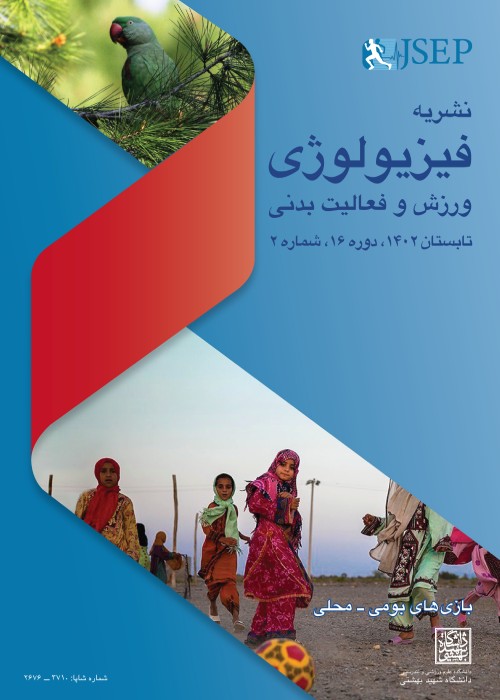Metabolic responses following aquatic vs. land exercise in trained diabetic postmenopausal women: the role of ANP and Epinephrine
The metabolic benefits from each individual exercise session (in land vs. water condition) designated for trained diabetic patients remain to be evaluated. The aim of this study was to invesigate blood glucose, FFA, insulin, ANP and epinepherin levels during land vs. water cycling session and also following early post exercise recovery period.
This was a case-crossover study with time series method. Twelve postmenopausal diabetic women (age 66.76 ± 2.3 years), participated in three distinct test sessions with glucose tolerance test at the begining, at control, water and land exercise conditions, following participating in an interval training protocol (six weeks). Both aquatic and land exercise sessions were consisted of three sets of ten min cycling intervals at 40% of Vo2max. Blood sampling were done in five occasions each session including: pre exercise, immediately post exercise and also at 60th, 90th and 120 th min of post exercise period. The data were analyzed by factorial (3×5; three five phase series) ANOVA for repeated measurements using SPSS 21.
acute cycling in both water and land conditions decreased blood glucose (-37% and -39%), insulin (-20% and -17%) and FFAs (-61% and -55%), while serum ANP (169% and 52%) and epinephrine (43% and 82%) were up regulated (P < 0.05). Serum Insulin, FFAs and ANP levels were elevated also followingthe exercise cessation, with a synergic suppression of blood glucose and epinephrine levels (P < 0.05). All measured variables levesl were lower in water exercise session compared to land exercise (P < 0.05).
more beneficial metabolic effects could be provided with an individual training session performed by regularly exercising diabetic patients in water condioton, compared to land exercise and this trend was continued through two hours of recovery period. However; more investigations remain to be done because of the lack of similar evidence and study limitations.
- حق عضویت دریافتی صرف حمایت از نشریات عضو و نگهداری، تکمیل و توسعه مگیران میشود.
- پرداخت حق اشتراک و دانلود مقالات اجازه بازنشر آن در سایر رسانههای چاپی و دیجیتال را به کاربر نمیدهد.



